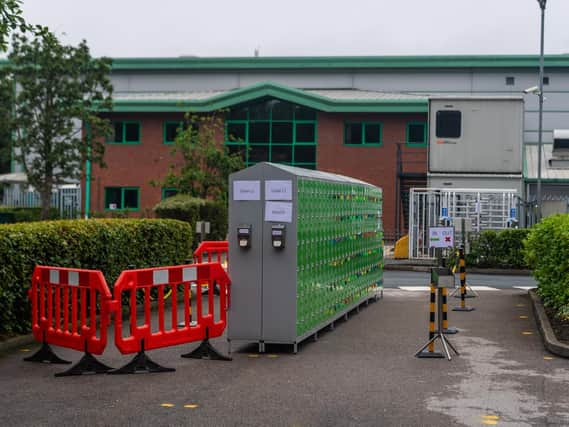This is why meat factories are so susceptible to coronavirus outbreaks


The meat processing plant, which is owned by Asda and supplies the supermarket chain with bacon, has been shut down after a 'small number' of cases of the virus and all staff have been tested. The government's new track and trace system was used to find people who had been in contact with the workers who returned a positive result.
Although no deaths have been linked to Kober, a bacon processing plant in Barnsley wasn't so lucky. Earlier in the spring, three workers at Cranswick Convenience Foods in Wombwell died of Covid-19, and a total of nine people were diagnosed at the site, with seven hospitalised.
Advertisement
Hide AdAdvertisement
Hide AdIn Wales, there have been clusters this month at the Two Sisters chicken factory in Anglesey, which has 58 cases, and Rowan Foods in Wrexham.
Major outbreaks have also been reported at meat packing plants all over the world. Ireland has had 16 clusters linked to meat factories, with over 800 workers infected and 16 hospitalised.
In the US, around 30 meat industry workers have died of Covid-19, including four food safety inspectors. At a pork processing site in Minnesota, a two-week shutdown was implemented after 500 workers tested positive. Face shields have now been made mandatory.
There were 300 confirmed cases at the Muller Fleisch plant in Germany, which partly blamed the outbreak of communal accommodation used by its migrant workforce.
Advertisement
Hide AdAdvertisement
Hide AdIn Canada there were nearly 950 cases at a meat packing house in Alberta, and 70 cases at a meat processing site in Melbourne, Australia.
So why are these plants so vulnerable to outbreaks?
Firstly, they have continued to operate as normal, with a full complement of workers, because food production is an essential industry. Unlike other sectors, it has not been able to shut down.
On high-volume meat processing and slaughter lines, it can be difficult for workers to adequately distance themselves from each other. They are often arranged around conveyor belts where each person is assigned a particular task to be performed at a rapid pace. Production would slow down if workers had to be further apart.
The strenuous nature of these jobs mean workers are more likely to perspire and breathe heavily, thus spreading bodily fluids more easily.
Advertisement
Hide AdAdvertisement
Hide AdShouting to be heard above the noise of loud machinery could also enable saliva droplets to spread between workers.
The virus spreads among people in close contact for a prolonged period. It is mostly transmitted through tiny droplets from an infected person’s nose or mouth when they cough, sneeze or talk.
Socio-economic factors are also a contributor. In all of the affected countries, the meat processing industry employs poorly-paid migrants who work long hours. In the US they are often provided with communal accommodation and group transport to the site on buses laid on by their employer. They are living and working in close physical proximity to many other people.
In the UK plants affected, resuming production will come with the introduction of new social distancing measures, more protection and potentially fewer employees being allowed onto a site at one time.